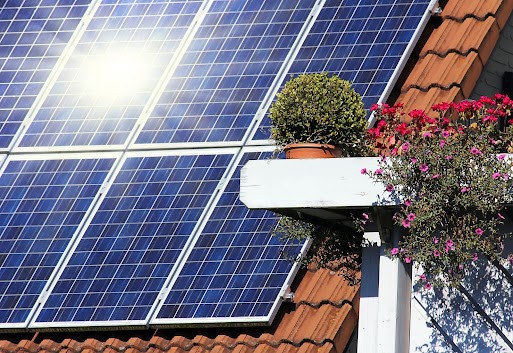Do you want to save money, benefit the environment, and add value to your home by installing solar panels? You’ve made a financially smart choice and a forward-thinking one. And part of the financial benefit of solar panels at home is the tax benefits you can take advantage of. What are these tax benefits? And what should you know about them? Here are a few key answers to your questions.

The IRS includes the purchase and installation costs of solar panels at home or a business as part of the Investment Tax Credit (ITC). This tax credit reduces your tax bill — rather than your taxable income, such as a tax deduction — dollar-for-dollar by eligible expenses. It is non-refundable, meaning that it can only reduce your tax bill to zero. But you can carry forward unused portions of the credit to future years.
This credit originally allowed you to claim 30% of your total eligible costs. However, the IRS is sunsetting it via reductions in the percentage over several years. From 2021 to 2022, you may claim 26% while the 2023 amount is 22%. By 2024, you can only claim 10%. While this may change, there is no way to know yet.
A number of states offer their own tax credits as incentives for residents to take up solar. Arizona offers residents an additional non-refundable tax credit of 25% of solar panel adoption costs (up to $1,000 maximum). Each state has its own rules that must be followed to qualify, of course. Some homeowners, for instance, may need to get a certification of compliance from the seller of their device.
The good news is that, in general, tax benefits from your home state do not reduce the amount you can claim on your IRS Form 1040. So an Arizona resident could benefit from a reduction in their combined tax bill (both federal and state) using the same purchase price. This form of double-dipping makes both credits even more valuable.
If you qualify for other incentive programs, such as local or state rebates, these amounts can impact your tax credits. Why? Because a tax-free rebate essentially reduces your net purchase price, you may need to subtract its value from your costs before calculating the tax credit.
Credits against your income taxes are one way to benefit, but would you like a more immediate perk?
Some states, including Arizona, exempt many solar energy systems from state sales tax. This saves up to 5.6% right off the top of your purchase price — a tax benefit you don’t have to wait for. And because state and local income tax deductions on Form 1040 have been reduced by recent tax reform, it’s better to skip sales tax rather than hope you can deduct it all later.
The solar incentive landscape is always changing. As with many programs to encourage positive changes by American property owners, new incentives are introduced and older ones are often ended. Your local solar panel service is the best resource to turn to in order to stay abreast of current incentives and what may be coming down the pike.
Want to know more about any of these credits, rebates, or local programs? Want to see how much you could personally save and on which equipment? Learn more by consulting with Harmon Solar. We will help you analyze your solar power needs, the options available for your property, and the financial benefits you can access. Call today to get started.